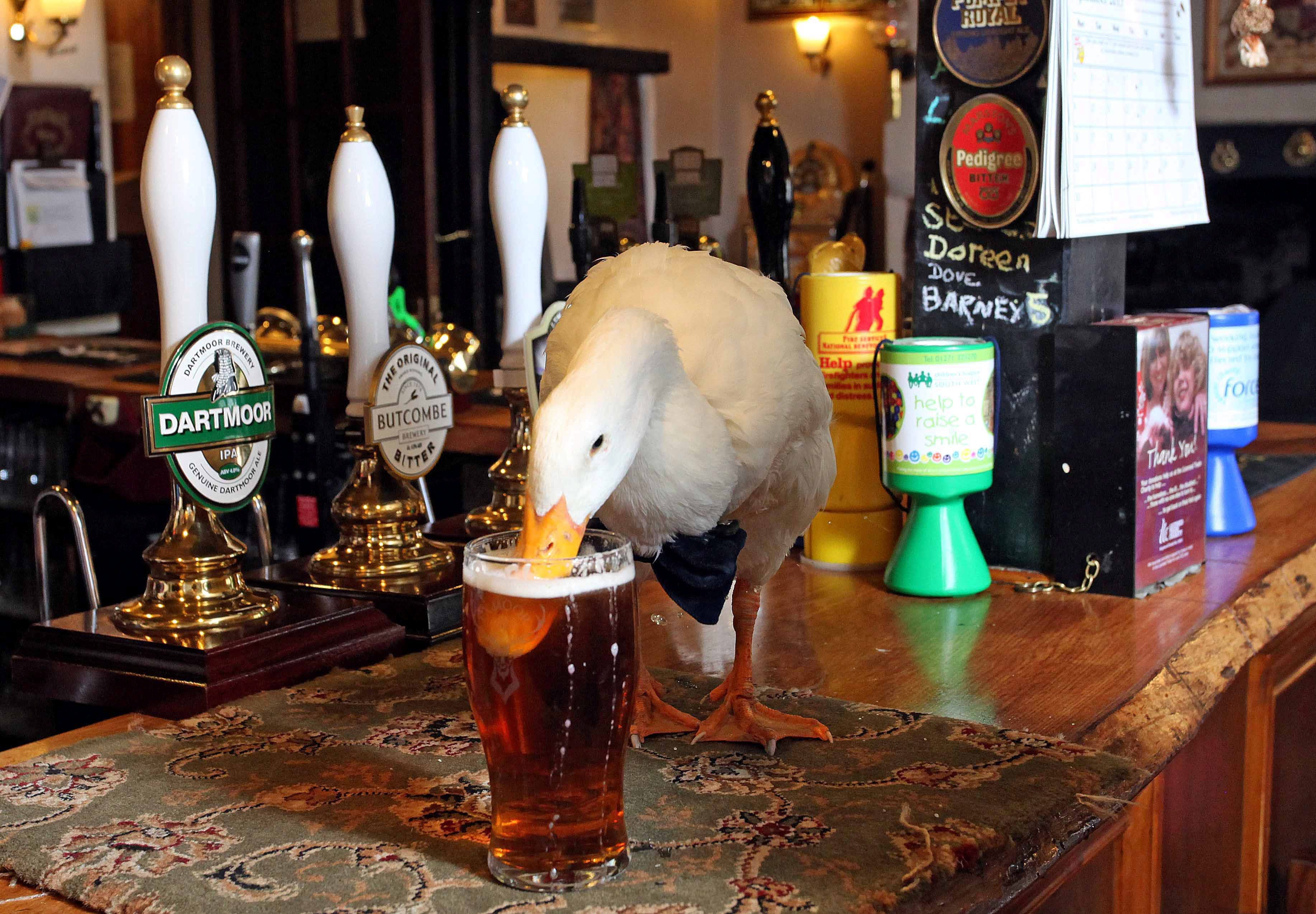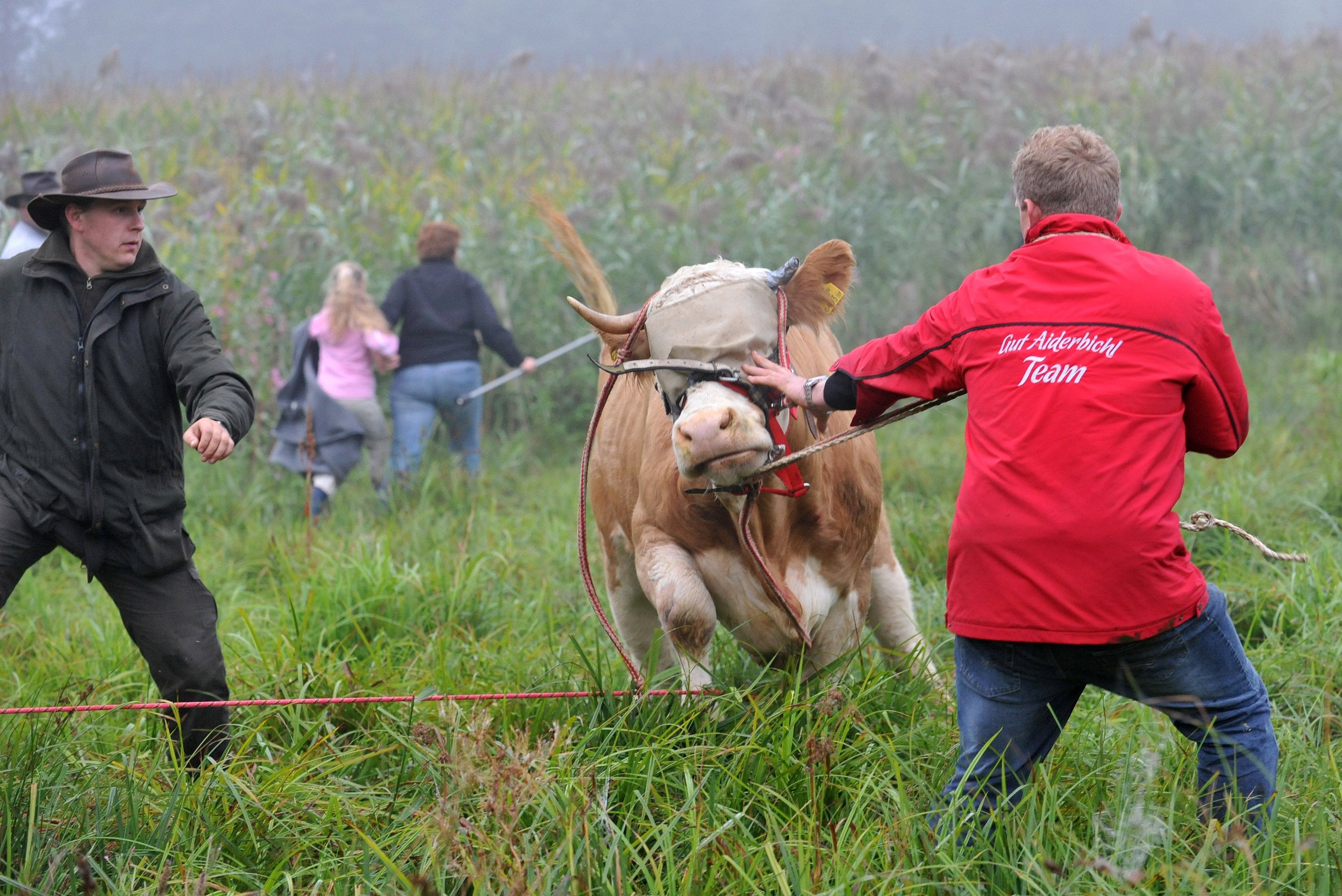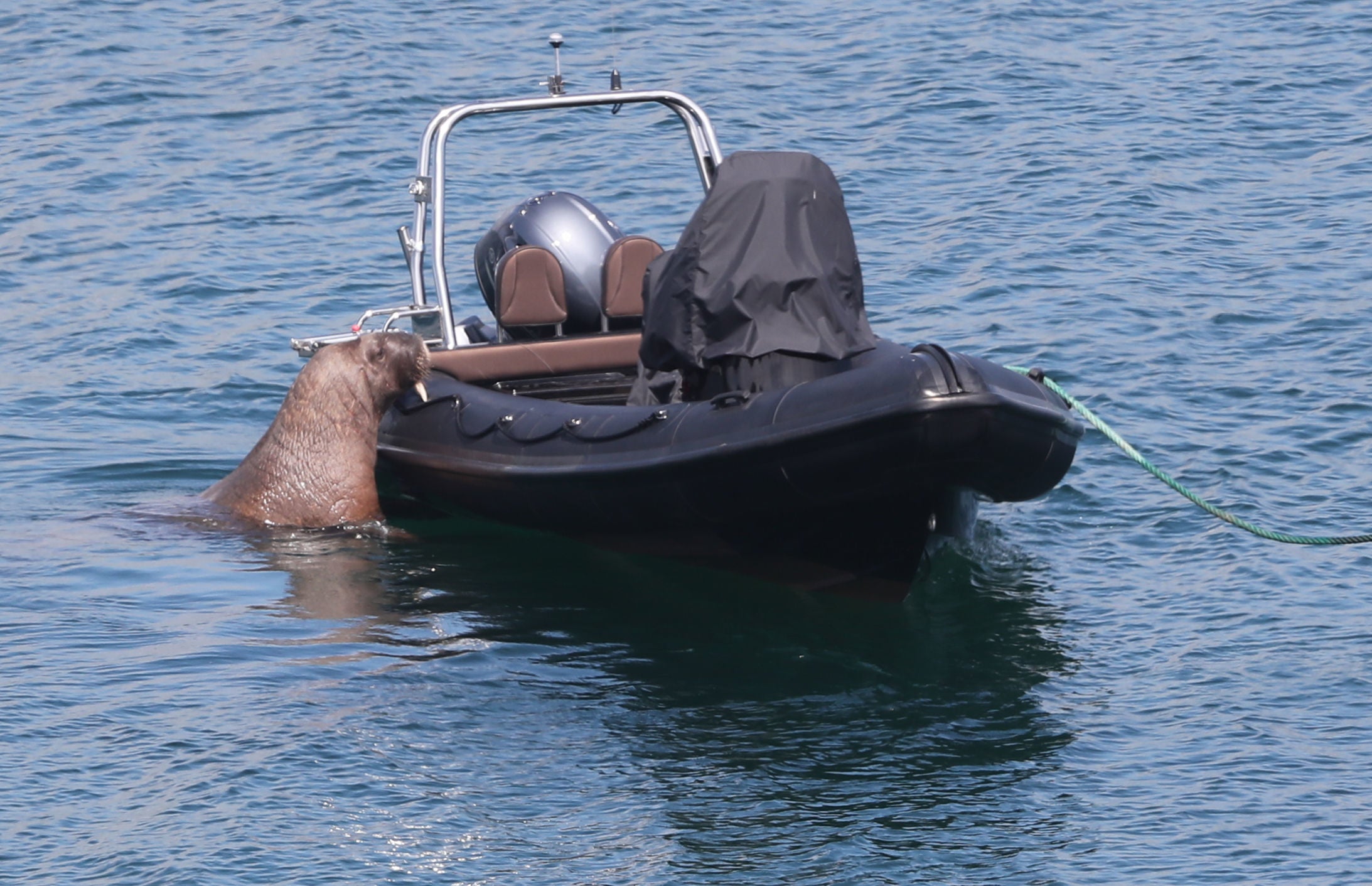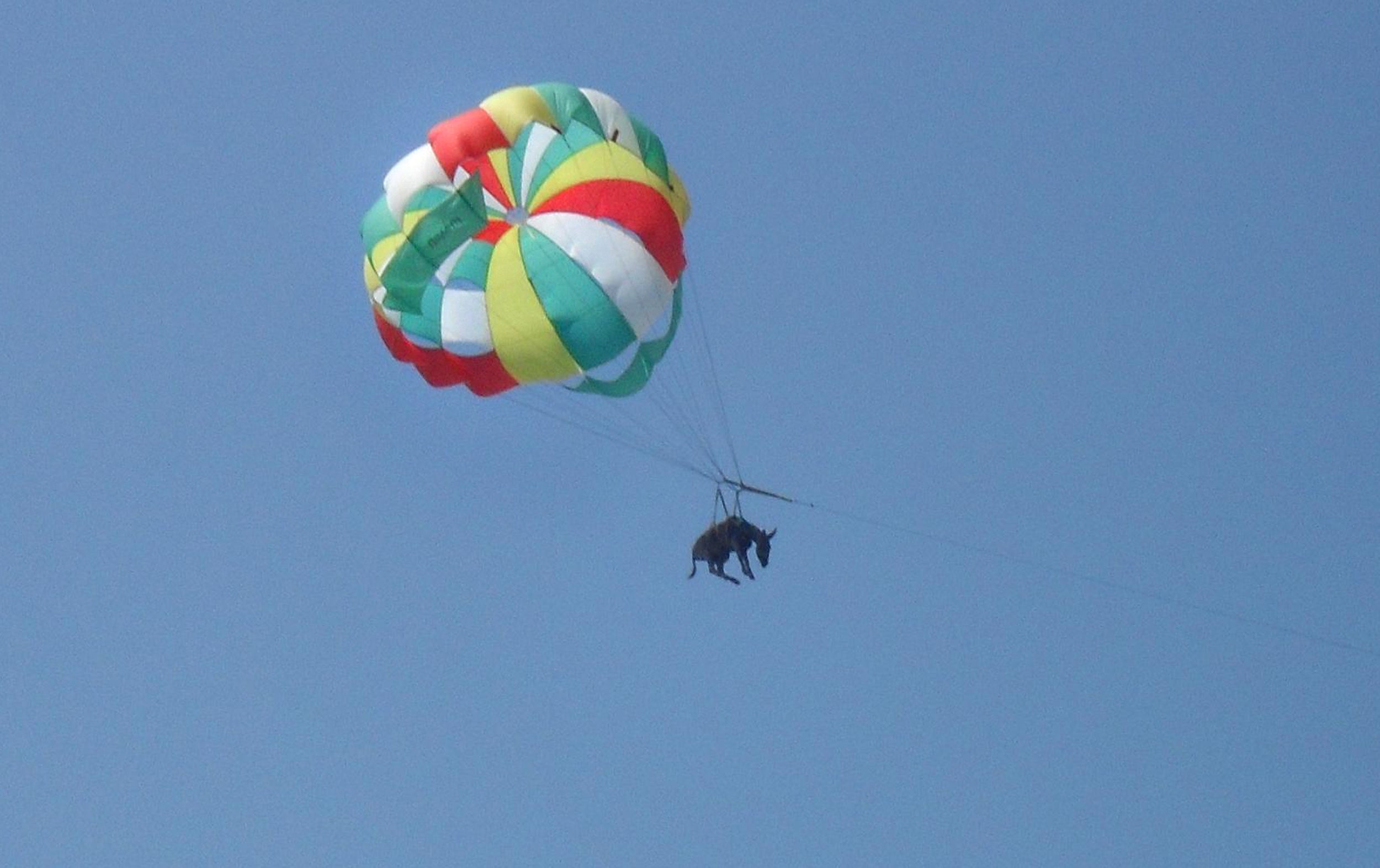Journalism’s silly season is upon us: What is it and where did it come from?
It’s that time of the year again, when news slows down, politicians and journalists alike take holidays and any old scoop will do, writes David Lister


It’s August and one looks back in awe at some of the great journalistic scoops from Augusts of yesteryear. The pulse raced at the report of senator John Kerry rescuing a hamster from the sea and massaging it back to life. The eyes widened at the feat of Eve Fielding, a pensioner from Margate, who grew a 23ft-high sunflower and named it, naturally, “The Eiffel Flower”.
Yes, it’s the silly season, that time of year when the news media simply does not have enough news, and has to search for the more fanciful variety.
In truth, as students of the genre will tell you, neither John Kerry’s hamster resuscitation nor the wonder of the Eiffel Flower are perfect silly season stories. A perfect silly season story is not just a one-off moment. It must run and run, ideally filling space for the whole of August. For that reason, it is only right to pay homage to the 2011 tale of Yvonne the cow who went on the run after “sensing” she was headed to the abattoir. The six-year-old cow provided a steady flow of headlines throughout August of that year until being captured with perfect timing at the end of the silly season on 1 September, and sent to an animal sanctuary.
One does not have to look back in time to savour silly season stories. This very month, The Times has followed the adventures of Wally the Walrus, terrorising boat-owners off the Scilly Isles until it returned to Ireland en route to its home in the Arctic.
My decades in journalism have made me a bit of a silly season sceptic. Somehow, some important things do tend to happen in August. There is no pause on natural disasters, just as there will be no pause on running Covid stories this summer. And the lack of a lot of mainstream news does have the bonus of more space for cultural news. The Edinburgh Festival and the Proms can come into their own. And, of course, the Olympics have provided an August godsend to hard-pressed news editors.
But, it has to be admitted that with parliament and the courts in recess, and leading politicians, like much of the world, on holiday, there can be a lack of many of the staples of the news agenda.
And so we have, and have always had, the silly season. Delve into the origins of the term itself and you will find that they are, not to put too fine a point on it… silly. France has “la saison des marronniers” (“the conker tree season”), and in many languages, the name for the silly season references cucumbers. Indeed, in Estonian it is hapukurgihooaeg (“pickled cucumber season”).

In Spain the term serpiente de verano (“summer snake”) is often used, not for the season, but for the news items. The term is a reference to the Loch Ness Monster, who, surprise surprise, tends to be sighted more than usual in the silly season.
So, many countries seem to have a silly season with highly imaginative terms for it. Only the US lets the side down, referring to it far too prosaically as “the slow news season”.
The first reference to the silly season in Britain came in The Saturday Review in 1861, which explained, with a wonderful, early example of print rivalry, why the quality of news coverage in The Times had taken a dip in the summer. And guess what, it was the fault of the journalists who remained in The Times’ office. Pulling no punches, it described them as “feeble”.
It thundered: “During the months… when parliament is no longer sitting and the gay world is no longer gathered together in London, something very different is supposed to do for the remnant of the public from what is needed in the politer portions of the year. The Times’ great men have doubtless gone out of town, like other great men … The hands which at other times wield the pen for our instruction are now wielding the gun on a Scotch moor or the Alpenstock on a Swiss mountain. Work is left to feebler hands … In those months the great oracle becomes – what at other times it is not – simply silly. In spring and early summer, TheTimes is often violent, unfair, fallacious, inconsistent, intentionally unmeaning, even positively blundering, but it is very seldom merely silly … In the dead of autumn, when the second and third rate hands are on, we sink from nonsense written with a purpose to nonsense written because the writer must write either nonsense or nothing.”

That was harsh, even then. It would be horribly unfair now. It takes more than a second or third-rate mind, it takes years of experience in investigative journalism to dig out such stories as 2005’s crack-addicted squirrels, or the 81-year-old woman in 2018 who complained to the press that her holiday to Spain had been ruined, because there were too many Spanish people there.
The squirrels story achieved the feat of exciting both tabloids and broadsheets. The Sun picked up a story from the South London Press that squirrels in Brixton were turning onto crack thanks to addicts burying their stashes in gardens (adding that crack-crazed squirrels are a common sight in the US). Then, The Guardian got in on the act, launching its own search for the drugged-up creatures. “I've just seen one jump down from an old sunflower by the Seventh Day Adventist church,” it quoted one Reg Throssell as saying. “I locked eyes with it, and it stared back at me really confidently. It was scavenging and it looked scrawny.”
For silly season stories have long since ceased to be just tabloid fodder. The death of Benson the carp in August 2009 did not just make The Times, it made the top of the front page of The Times with a picture and heart-rending headline “Benson, Britain’s Best-Loved Carp 1984-2009”. In case the picture wasn’t sufficient help, The Times assisted its readers in imagining the fish’s enormous girth by calling it “the Pavarotti of the fish world”. Who knows, perhaps it could sing.

Born around 1984 and at times England's largest freshwater fish, this awe-inspiring carp was found dead at his home at Bluebell Lakes near Peterborough in 2009. The story of Benson must be the only silly season story to have merited a place in The Guardian’s corrections and clarifications column. A couple of days after recording the fish’s demise, the paper was obliged to write: “Benson the carp, a former resident of Bluebell Lakes, was a female fish and should not have been called ‘he’ in the article.”
But for silliness combined with length of coverage, Benson must give way to Blackie the donkey. In 1987, Blackie was picked by the residents of a Spanish village to take part in an obscure fiesta which involved him being dragged through the streets and beaten.
Cue the start of a tabloid war, fought over international borders. The Sun dispatched ace reporter Hugh Whittow, while the Daily Star sent even acer reporter Don Mackay to save the beast. Whittow it was who secured the buy-up, but foolishly put Blackie out to pasture for the night. Under cover of darkness up crept the intrepid Mackay, who took the opportunity to rescue the donkey and get a world exclusive for the Daily Star.
Rescuing donkeys was to become a noble, silly season tradition for Fleet Street. In 2010 Sun readers were outraged after reading of a donkey which was suspended by parachute 125ft in the air to give publicity for a Russian beach. The Sun devoted its front page to how it saved it, with the headlines “We Saved Her Ass” and “The Sun rescues parasailing donkey”. The paper’s sensitive readers were assured that the animal would never be forced to parasail again. It is thought the incident inspired the title at least of the celebrated sitcom Drop The Dead Donkey.

There was a suitably “silly” postscript to that story, by the way. The Russian press declared that The Sun had rescued the wrong donkey.
Some silly season stories simply defy explanation, and perhaps that is the secret of the art. The Guardian reported in 2003 that a dog was offered a gold credit card with a £10,000 limit. An application form for the Royal Bank of Scotland credit card arrived at the home of Raymond Slater, in Stockport, Greater Manchester, addressed to his shih-tzu, Monty. The dog was offered a gold credit card and the chance to earn air miles.
Medical stories often feature in the silly season, and few are as alarming as the tinnitus tale of Patricia McLeod, 59, of Midlothian. Ms McLeod was dozing off at her home when a buzzing in her ear began. It raged for four hours before subsiding. Ms McLeod went to see her doctor, fearing that the ringing in her ears must denote that she was suffering from tinnitus. But, when a district nurse syringed her ear, a two-inch dead moth came out.
In 2005, The Sun under the frontpage headline “Victor Meldrew found in space”, reported that astronomers had found a constellation that, when its dots were joined, made the face of Richard Wilson’s famous sitcom character in One Foot in the Grave. There was, I have to say, a resemblance.
The silly season, of course, is embraced by digital media as much as by traditional newspapers. In August 2015 the Huffington Post UK, of serious mind for 11 months of the year, made much of the story that a bow-tie wearing duck was injured in a pub brawl.
And, it is heartening to see that the silly season can surface in the most unlikely of places. Communist China has one too. In 1994, as The Independent reported, there was a run on pigs’ feet in the markets of Chifeng in Inner Mongolia after word spread that Chairman Mao Zedong and General Chiang Kai-shek were preparing to do battle in the afterlife. The official Chinese Commercial News reported that a medium had passed on the news that the two former adversaries were in need of earthly recruits to go over to the other side. There was only one way for a man to avoid such conscription; he must eat 98 special dumplings made by his mother and two pigs' feet provided by his mother-in-law. “All the butchers’ shops have had very good business, and are always crowded with old women,” the Chinese Commercial News reported.
Now that’s how to do a silly season story in style.



Join our commenting forum
Join thought-provoking conversations, follow other Independent readers and see their replies
Comments